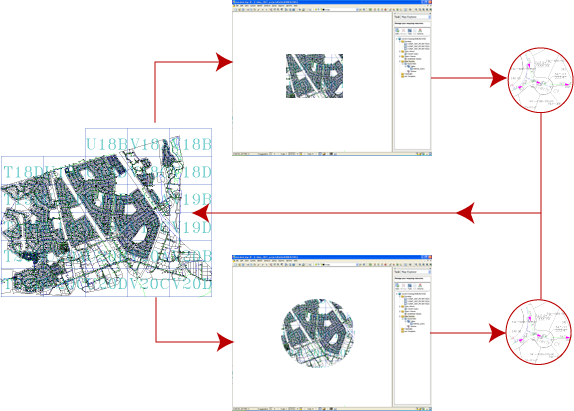If you are using multiple DWG files to store your data for a particular geographical area such as a city, you probably have your files organized in one of two ways:
- Stacked—each DWG file contains data for a single system or network, such as sewer, waste water, roads, or parcels. The DWG files overlay one another.
- Tiled—each DWG file contains data for a specific area of the city. The DWG files are adjacent to one another, according to an indexed grid.
AutoCAD Map 3D supports multiple users accessing and editing the same set of source DWG files at the same time over a network. The source DWG files essentially function as a database for the workgroup. Each user starts an editing session by opening a template drawing. He or she then runs a query to bring in a subset of the source data for editing. (For a demonstration of how queries work, see Bring in a subset of features using a query).
Of course, in a multi-user enviroment, there has to be a mechanism to prevent the engineers who are editing the data from overwriting one-another’s work. AutoCAD Map 3D handles this by placing objects selected for editing in a save set (the red circle in the illustration below). These objects are then locked so that other users cannot edit them at the same time.

The following demonstration shows what happens when two open DWG sessions start accessing the same objects in the source DWG files. It simulates multi-user editing using two open work sessions, one on top of the other. In real-life, of course, there would be two users on different computers in different locations.
The animation starts from the point at which both users have run a query that brings an identical set of data into the current editing session.


